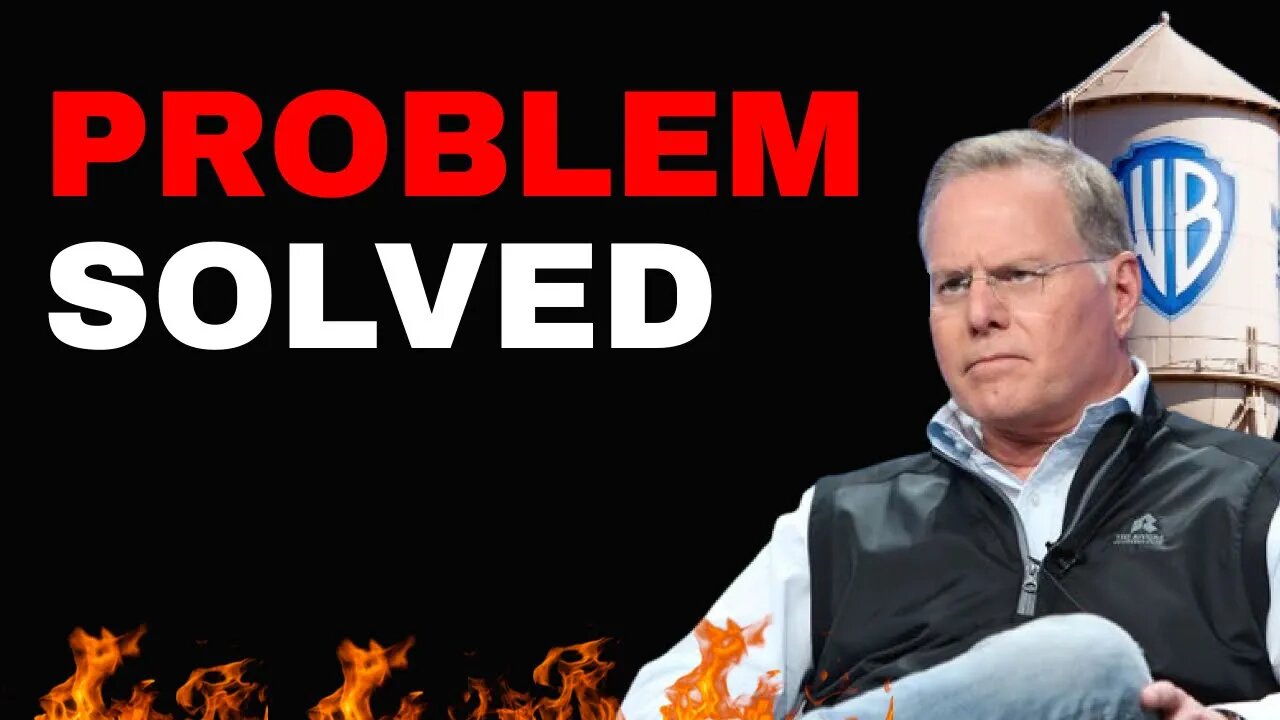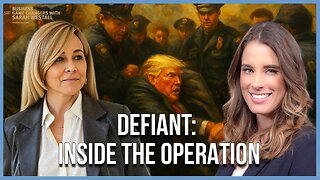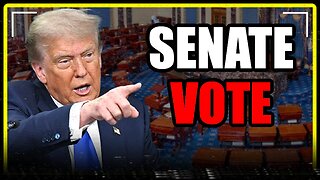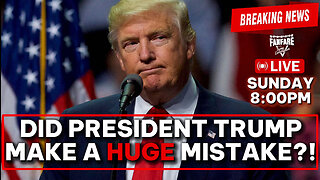Premium Only Content

How WARNER BROS SOLVED Diversity, Equity And Inclusion PROBLEMS And FOOLED Hollywood Reporter!
The merger between DISCOVERY and WARNER BROTHERS took place in April of 2022. By July 2022 they had a new Diversity, Equity And Inclusion chief in place, replacing someone who left the company after the merger and had quickly restructured the department to have much less influence over the merged company. By September they announced publicly they had completely changed up the department and by October they closed the 40 year old pipeline program sending (in recent years) program members on lavishly paid for writing jobs at the expense of the company. Hollywood went berserk immediately and Warner Brothers very cleverly fooled all of them by claiming to 'move' the now diversity programs to their corporate DEI department. Finally, days later the Hollywood Reporter is starting to figure out what happened but it's too late now.
PLAYLIST 57 VIDEOS: WARNER BROTHERS DISCOVERY & DAVID ZASLAV
https://www.youtube.com/playlist?list=PLUPkiRW84R1gxDL-u2P1Ac4bE5bONlHix
SUBSCRIBE TO ADAM POST SPEAKS:
https://www.youtube.com/c/AdamPostSpeaks
Follow ADAM POST on Twitter:
https://twitter.com/comicswelove
Buy My Graphic Novel: THE MERMAIDS
https://www.indiegogo.com/projects/the-mermaids-comic-book/x/2851886#/
Warner Bros. Discovery Grapples With the Cost of Cutting Pipeline Programs
https://www.hollywoodreporter.com/business/business-news/warner-bros-discovery-cutting-pipeline-programs-writers-directors-workshop-1235244236/
How WARNER BROS SOLVED Their Diversity, Equity And Inclusion PROBLEMS And Fooled Hollywood Reporter!
As Warner Bros. TV Group underwent a round of layoffs in October, the news that garnered the most attention seemed to catch the leadership of the newly merged Warner Bros. Discovery off guard: the shuttering of WBTVG’s long-running writer and director workshops.
The employees laid off as a result of the closures — workshop head Rebecca Windsor and administrator Elly Lachman — represented just two of the 125 positions eliminated Oct. 11 across the TV group, but the decision sparked backlash among the vocal community of writers on social media, followed by a swift rejoinder the following day from the DGA.
Related Stories
Side-by-side headshots of Billy Davis, a Black man in glasses, and Rhyan Lewis, a Black woman with chin-length natural hair, both smiling and wearing business suits.
BUSINESS
Paramount, Sony Join MPA and EICOP's Entertainment Law and Policy Fellowship (Exclusive)
Headshots of three Asian men with short haircuts (David Loong, Kevin Luu, Kelly Luu) and an Asian woman with long dark hair (Manivone Nonthaveth)
TV
Universal Content Productions, 'Pachinko' Boss Announce Finalists for Asian Pacific Islander Storytelling Lab (Exclusive)
The guild claimed in a statement that the workshops’ cancellation violated the terms of its 2014 collective bargaining agreement mandating that each studio operate a development program for emerging writers, with a focus on improving diversity in TV. Half an hour later, WBD announced that its own report of the workshops’ death was greatly exaggerated; they were in fact moving under the jurisdiction of the company’s DEI unit.
Whether or not the move was planned, the financial motivations are clear: The TV group had a cost-cutting target to hit, and as a non-revenue-generating line item, the workshops were easy prey, even though their costs were relatively light compared to the production budget of any given TV show: two employee salaries, plus the staff writer salaries and episodic directing fees for workshop participants.
Still, that was roughly $2 million that WBD CFO Gunnar Wiedenfels could slash from WBTV’s content-focused ledgers — and easily offload as a corporate DEI priority when the need arose.
Opinions are split as to which approach — program-paid or show-paid — is more effective in accomplishing the expressed goal of creating lasting, ascendant careers for participants. The argument behind having program writers and directors paid no differently from the rest of the writers room or other episodic helmers is to help erase the perception that they are token or affirmative action hires.
In addition, alumni of the various network and studio pipeline programs have over the years reported having trouble being rehired on shows once they were no longer “free.” And the stigma often is exacerbated with programs branded under the DEI umbrella, which the WBD workshops now are.
On the other hand, advocates of the program-subsidized model argue that in practice, shows simply won’t take on workshop participants if they have to pay for them, especially with ever-stingier budgets. Many working writers are reporting a trend of smaller, top-heavy rooms with little vacancy for entry-level writers.
But the bottom line, as The Black List founder Franklin Leonard sees it, is, “If people are debating about who’s responsible for paying for the diverse writer, everyone’s already failed.”
-
 31:30
31:30
The Why Files
7 days agoCodex Gigas | The Devil's Bible and the Nazi Hole to Hell
164K74 -
 1:05:26
1:05:26
Man in America
16 hours ago“Poseidon” Doomsday Sub, Microplastics & The War on Testosterone w/ Kim Bright
89.4K6 -
 1:05:57
1:05:57
Sarah Westall
9 hours agoThe Story the DOJ, the FBI and the Media doesn’t want you to Know w/ Christina Bobb
37.7K10 -
 2:16:01
2:16:01
IsaiahLCarter
1 day ago $14.85 earnedGraham Linehan: A Mess of Courage and Conviction || APOSTATE RADIO 034
28.1K -
 2:03:29
2:03:29
Tundra Tactical
9 hours ago $14.85 earned🛑LIVE NOW!! Honest Gun Company Slogans Gun Mad Libs and Much More
31.9K2 -
 4:54:33
4:54:33
MattMorseTV
10 hours ago $287.72 earned🔴Senate VOTES to END the SHUTDOWN.🔴
166K203 -
 2:55:39
2:55:39
Barry Cunningham
1 day agoBREAKING NEWS: DID PRESIDENT TRUMP MAKE A HUGE MISTAKE? SOME SUPPORTERS THINK SO!
63K40 -
 7:50:44
7:50:44
SpartakusLIVE
9 hours agoSOLOS on WZ || #1 Challenge MASTER is BACK in Verdansk
56.3K3 -
 2:49:38
2:49:38
megimu32
7 hours agoOFF THE SUBJECT: Chill Stream, Music & Fortnite Chaos 🎹🎮
43.7K4 -
 2:24:09
2:24:09
vivafrei
18 hours agoEp. 290: Canada's Darkest Week; Comey Fix is In! Tariffs, SNAP, Hush Money Win & MORE!
240K217